|
|
|||||
|
This week, we’re covering Zambia’s debt deal, the fall out of Nigeria’s collapsing currency, and the closing window to stay within a 1.5 degree world. |
|||||
|
|
|||||
Top newsBad haircut: Zambia finally reached a debt deal with its private bondholders — but it may not bring needed relief. Investors agreed to an 18% cut on the total value of their claim, worth a total of US$3.8 billion. This follows a formal agreement on its official debt to governments – excluding some Chinese policy banks – which covered US$6.8 billion in loans. The IMF has resumed funding to Zambia, and the country last week concluded talks with private creditors. Sounds great. But the devil is in the details. Due to high interest rates since Zambia called for debt relief nearly three years ago, the face value of the new bonds after the haircut will be US$100 million higher than the old ones which were worth US$3 billion. The bonds also have a steep repayment structure: US$500 million of amortisation in 2024-2025 and US$100 million in annual coupon payments. And if Zambia’s economy fares better than expected, it will have to back more of its debt.  Africa at the UN: Roughly 80% of African countries voted in favour of a UN General Assembly resolution calling for an immediate and sustained “humanitarian truce” in Gaza. The resolution passed with 120 in favour, 45 abstentions, and 14 against. Those voting against included the US, Hungary, Paraguay, Czechia, Croatia, Austria, and a handful of small island states. The resolution condemned “all acts of violence aimed at Palestinian and Israeli civilians, including all acts of terrorism.” But it did not specifically mention Hamas as perpetrators of the 7 October terrorist attacks. France was the only G7 country that voted in favour of the truce. Canada, Germany, Italy, Japan, and the UK abstained from the vote. More than 3,000 children have been killed in Gaza and in Israel over the past three weeks. Tanking: Nigeria’s naira is tanking, driving inflation to 26.7% and putting pressure on President Bola Tinubu. In May, Tinubu introduced a strategy of allowing the naira to float more freely, in the hopes of attracting more foreign investment. But investors are yet to be convinced. The naira is now at record lows against the dollar. Imports of food and fuel are more expensive as a result, which is, in turn, driving inflation. Nigeria is in dire need of foreign exchange, after Tinubu’s predecessor, President Muhammadu Buhari restricted importers from accessing dollars on the official market, in the hopes of spurring domestic production. Nigeria earns dollars from selling oil, but it is currently producing less than its OPEC quota. Mama cash: As Kenya seeks to mobilise revenues to deal with its spiralling debt problems, Kenyan businesses are shifting from MPESA to cash to escape taxes. More than half of Kenya’s GDP occurs through transactions on MPESA. President William Ruto wants to increase tax revenue by 25% (US$3.3 billion). In September, Kenya’s Revenue Authority deployed 1,400 paramilitary-trained field officers to “visit” businesses and ensure tax compliance. Nearly 60% of the country’s revenues are used to service debt. 👀 Money money money: A new remittance matrix built by ONE’s Mattie Price shows the depth and breadth of the African diaspora in G21 countries who send hard-earned cash back home. The visualisation shows the depth of family ties between Egypt, Saudi Arabia, and the UAE. It also highlights that Africans in the US send the most money to Nigeria, Kenya, and Ghana, while Africans in France and the UK send significant volumes of money to 33 and 35 African countries, respectively. Annual remittances to Africa roughly equal official aid to the continent.  Slim chances: Scientists have warned that the chances of the world staying within 1.5°C above pre-industrial levels are now lower than the 33-50% previously predicted. ONE’s analysis shows that at 1.5°C (2.7°F), heatwaves are five times more likely and rising sea levels could swallow low-lying countries, which are currently home to more than 600 million people. At 2°C (3.6°F), heatwaves will expose 400 million people to extreme heat and 20% of African species are at risk of extinction. Last year carbon emissions hit an all time high and are expected to rise further. With a month to the COP-28 climate conference (hosted by oil producer United Arab Emirates) hopes of more ambition are slim. Actions have certainly not kept up with promises since the 2015 Paris agreement when countries agreed to keep the world below 2°C, and ideally below 1.5°C. Pull over: Namibia ordered its police to stop Chinese firms from exporting raw lithium. The country’s mining commissioner directed the country’s police chief to stop trucks carrying raw lithium ore from Xinfeng’s Kohero mine. In an effort to encourage local processing, Namibia banned exports of unprocessed lithium in June. Last week, Namibia signed a US$1 billion deal with the EU to improve port infrastructure and develop critical raw materials and renewable hydrogen. From the ONE Team
The numbers

|
|||||
|
|
|||||
Quote of the week
|
|||||
|
|
|||||
What you should read, watch, and listen to:
|
|||||
|
|
|||||
|
The ONE Campaign’s data.one.org provides cutting edge data and analysis on the economic, political, and social changes impacting Africa. Check it out HERE. |
|||||
|
|
|||||
Did you like today's email?Loved it Mehhh Hated it |
|||||
|
|
|||||
|
|||||
|
This email was sent by ONE.ORG to test@example.com.
You can unsubscribe at any time. ONE Campaign |
